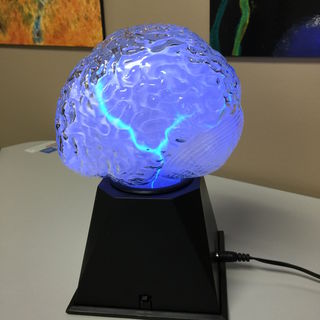Memory
What Does Your Plastic Brain Need to Grow?
Create these 8 neuroplastic circumstances to enrich your brain!
Posted September 26, 2016
You now know your brain is plastic and can be influenced by many variables. Dr. Michael Merzenich, often called the Father of Modern Neuroplasticity, outlines the necessary conditions needed for your brain to create new neuronal pathways. His 2013 book titled Soft-Wired: How the New Science of Brain Plasticity Can Change Your Life is a must read for anyone who wants to know more about generating better brain health.
The first time I read his book my feelings went from discouragement to hope. Without understanding what conditions are needed for healthy brain growth, the aging brain and its behavioral correlates seems doomed for a dismal ending. However by engaging in wellness activities and creating an enriched environment of change and stimulation, your aging brain can be vital, rejuvenated and truly create neurogenesis, new neuronal growth especially in the hippocampus but throughout the brain. Now that is encouraging!
Before I share the 8 circumstances needed for positive plasticity, I want to share my favorite Dr. Michael Merzenich quote. This tenet needs to be in the forefront of everyone’s brain growth. He stated, “If it doesn’t matter to you, and if you don’t have to try to succeed, NOTHING much will change in your brain!” So remember that notion, and begin to recognize what you have to prepare in order for your brain to continue to grow and stay healthy.

1.Change occurs when the brain is in the mood for learning.
Many of the lifestyle topics presented in previous blogs assist your brain to be in the mood for learning. Proper sleep, nutrition, exercise and wellness in general create the necessary building blocks and conditions for brain growth.
2.The brain must judge the experience as fascinating or novel and the behavioral outcome is deemed important or just good.
Experiencing the same habit or experiencing the same skill even when that skill is expertly done, makes your brain complacent. The brain loves to be challenged and needs additional stimulation and complexity to continue to thrive.
3.Effort makes a difference for learning, and change will be greater.
Hard work and practice allow for brain growth and brain strength. However doing the same exercises every day or taking the same route to work every day makes the brain soft and lazy. Diversity and variety is what the brain needs.
Here is an example:
My husband and I ride our bikes every morning. Our subdivision began the tedious process of re-paving the roads. The first stage was to pour tar and pebbles over the roads. It was so difficult to ride our bikes. It was very scary and uncomfortable. For one day we turned around and went a different route. At least our brains were seeing something different. Then I decided we needed to adapt and challenge our brains to ride over the rough roads. We did that, and I was amazed how quickly we became adept at that pebbly road. We offered our brains a complex challenge. We adapted very quickly to the complexity. I have to admit, I was quite proud of us!
4.What changes in the brain are the strengthening of the connections.
The notion that neurons that fire together wire together is very true. The more you practice a new skill, the stronger those connections become. Of course, this is true for negative plasticity as well as positive plasticity. The more we practice our bad habits, the greater the synaptic rut will be come When you learn something new and continue to practice that skill, those negative ruts are pruned away.
5.The more powerfully connected the nerve cells are, the more reliable the behavioral productions.
The more you practice, the better and easier the behavior becomes. But that is somewhat paradoxical, because once you obtain a certain level of expertise and skill, the brain does get bored. So you always need to “up your game.” If you are really good at something, get uncomfortable again and add to that skill. If you are great at tennis, learn a new spin on the ball. If you speak English well, this is the time to learn another language. Your brain will love you.
6. Mental rehearsal assists in brain plasticity based learning.
Research is demonstrating that even imagining a skill or practicing that new technique mentally, activates the brain as well as actually doing that same skill. I so enjoyed watching the summer Olympics. You could watch those peak performers continue to practice mentally as they were preparing to compete.
7. The brain recalls the last good attempt, makes incremental adjustments and progressively improves. Memory guides most learning.
It is important to reinforce every small step in achieving your goal or new skill. You can not learn it all at once. Breaking the technique down into smaller increments and rewarding those successes is important.
8. The brain functions with a negative bias. It is very good at remembering bad things, but bad at remembering good things.
This last tenet comes from the work of Dr. Rick Hanson, 2016. It fits nicely here though. To be able to practice condition #7, then you must understand that negative bias occurs almost instantly because of evolutionary needs. If a tiger is chasing you, instantly run. You will remember that tiger in case it comes another time. To build new positive skills and help your memory guide you, it takes longer to assimilate into the brain. You must practice that new skill or insight for at least 20 seconds. Then your memory can assist in your new learning.
The moral of Dr. Merzenich’s work is to always continue to learn. Make yourself uncomfortable. Try new adventures. Be curious and adaptable. Take a look at your Bucket List and challenge yourself to take on one new skill. Add more complexity to an already existing skill. Your brain will love you. You will also live a longer, more productive and vital life.
For more information on neurocounseling, make sure to check out the Bradley University Counseling Program at: http://onlinedegrees.bradley.edu/counseling/




